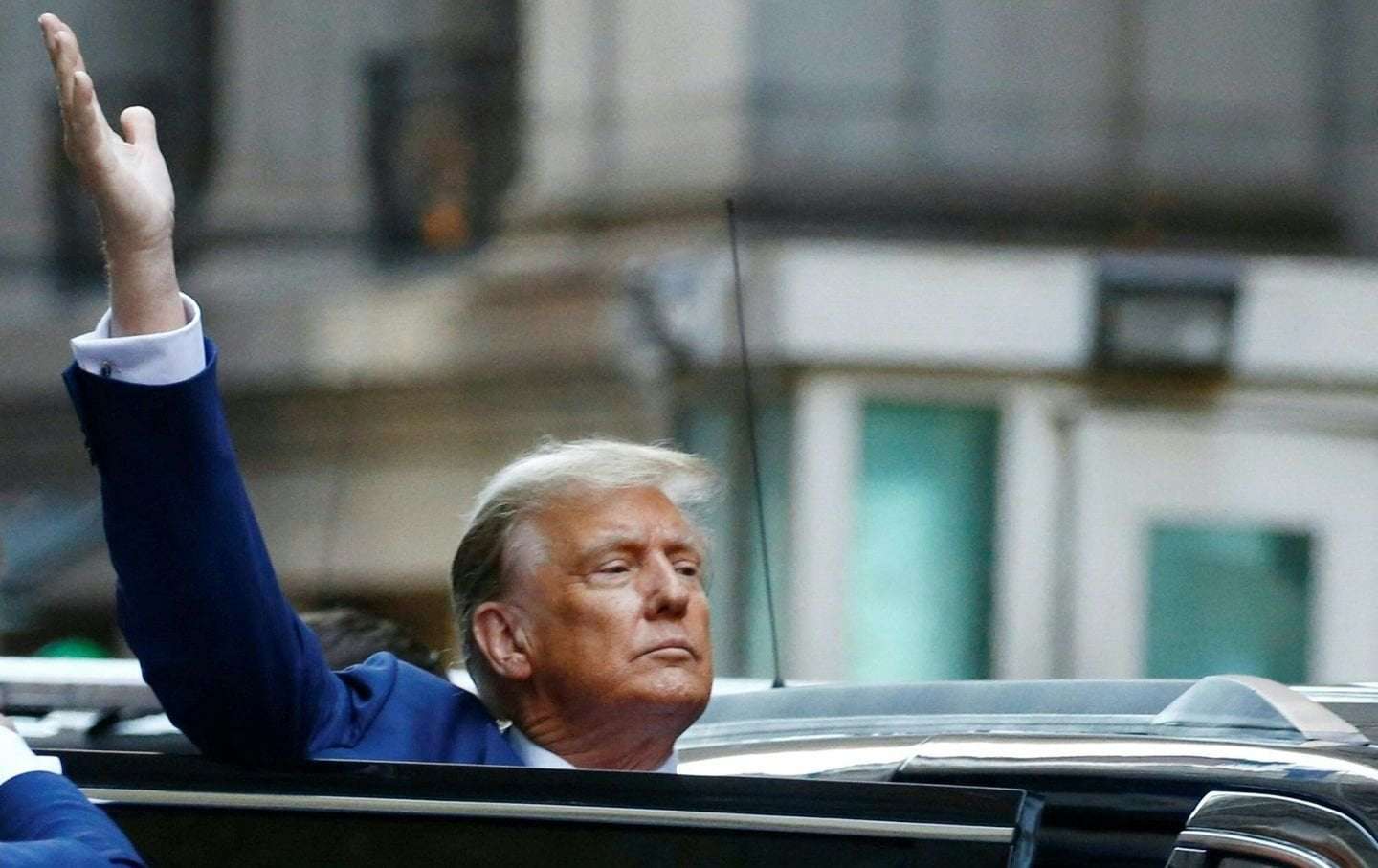Politics / The Only Way Trump Stays on the Ballot Is if the Supreme Court Rejects the Constitution It’s simple: Amendment 14, Section 3 bars Trump from the ballot. The question today is whether the justices will accept this reality.
Former US president Donald Trump departs after attending the civil fraud trial against the Trump Organization in New York State Supreme Court, in New York City on January 11, 2024. (John Lamparski / AFP via Getty Images)
The US Supreme Court faces a simple question when it comes to today’s hearing on whether Donald Trump’s name should appear on primary and general election ballots this year: Is Trump constitutionally qualified to seek and hold the office of the presidency?
The answer to that question—if the justices honestly interpret the clear language of the United States Constitution—is equally simple: No.
The nation’s founding document outlines a series of qualifications for Americans who endeavor to obtain the presidency. They are not all found in one place. Rather, the requirements are spread throughout the document: some at the beginning where the framework of the federal government was spelled out, and others added as circumstances demanded.
Most Americans are aware that Article II, Section 1, Clause 5 of the Constitution declares, “No Person except a natural born Citizen, or a Citizen of the United States, at the time of the Adoption of this Constitution, shall be eligible to the Office of President; neither shall any Person be eligible to that Office who shall not have attained to the Age of thirty five Years, and been fourteen Years a Resident within the United States.”
But there are other requirements. Section 1 of the 22nd Amendment establishes a term limit for presidential candidates. stating, “No person shall be elected to the office of the President more than twice, and no person who has held the office of President, or acted as President, for more than two years of a term to which some other person was elected President shall be elected to the office of the President more than on.”
And, of course, Section 3 of the 14th Amendment—which the court will be considering today—bars insurrectionists and their supporters from holding positions of public trust: “No person shall be a Senator or Representative in Congress, or elector of President and Vice-President, or hold any office, civil or military, under the United States, or under any State, who, having previously taken an oath, as a member of Congress, or as an officer of the United States, or as a member of any State legislature, or as an executive or judicial officer of any State, to support the Constitution of the United States, shall have engaged in insurrection or rebellion against the same, or given aid or comfort to the enemies thereof.”
Only if Congress votes by a two-thirds majority to lift the ban can an individual who has so violated his or her oath of office again serve, according to the clearly defined dictates of the amendment.
The work of interpreting these constitutional requirements does not have to be complicated.
For instance, the name of US Representative Maxwell Alejandro Front, the Florida Democrat who is the youngest member of Congress, cannot be placed on a presidential ballot this year because, at 27, he does not meet the age requirement. No congressional resolution or court ruling is necessary to settle the issue. Reality is sufficient.
The name of Barack Obama cannot be placed on a presidential ballot this year because, as someone who has already served two full terms in the Oval Office, he is not allowed to bid again. No congressional resolution or court ruling is necessary to settle the issue. Reality is sufficient.
